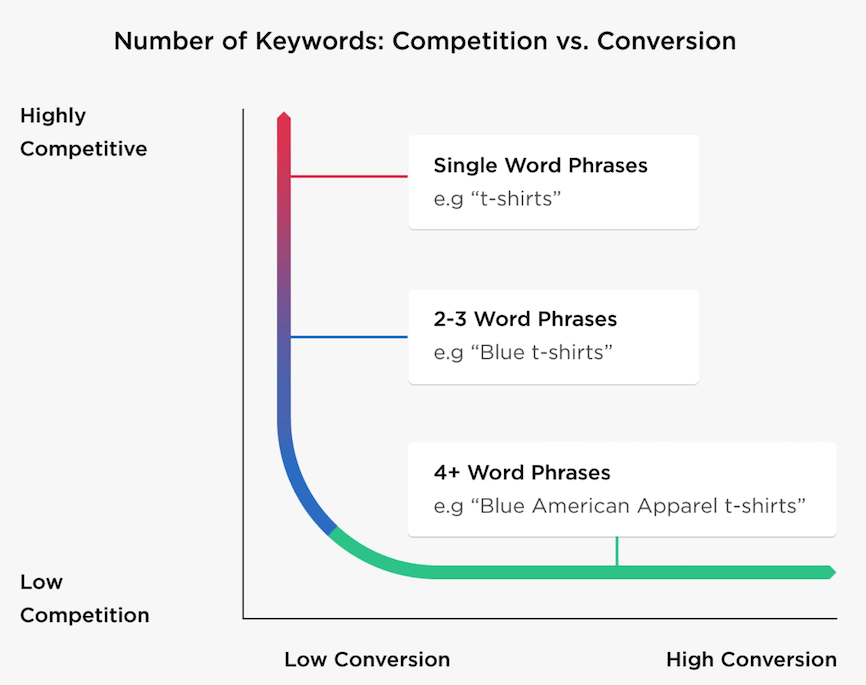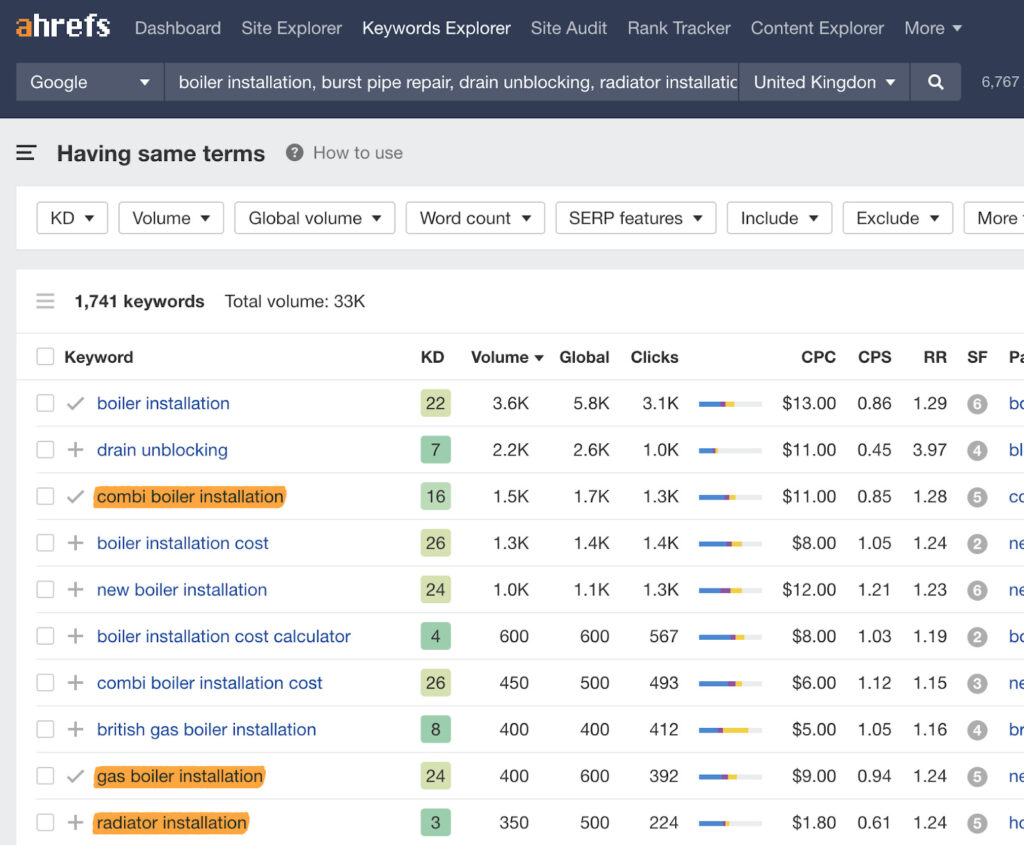
Search engine optimization (SEO) is essential for bringing focused visitors to websites in the wide digital landscape.
The skill of keyword research is at the core of SEO. Businesses may increase their online visibility, draw in qualified leads, and ultimately maximize their marketing efforts by learning how to successfully discover and target the relevant keywords. In this blog post, we’ll explore the nuances of keyword research and give you useful advice and concrete examples to help you succeed with SEO.
Prior to beginning your keyword research journey, it is essential to set clear goals. Recognize the goals of your website, the goods or services you provide, and the target market. You may coordinate your keyword strategy to maximize the impact of your marketing efforts by identifying your objectives.
As a marketing agency based in Concord, NH we often leverage using a keyword research strategy by brainstorming potential seed keywords. These are the keywords or expressions that are pertinent to your company. As an illustration, your seed keywords for an online shoe store might be “running shoes,” “athletic footwear,” or “sports shoes.” Create a thorough list that takes into account all facets of your company.

Utilize Keyword Research Tools 🔮
Use keyword research tools to grow your keyword list and learn insightful things. You can use these tools to gather information on search traffic, competition, and similar terms to guide your decisions. Google Keyword Planner, SEMrush, and Moz Keyword Explorer are three common tools.
You enter the seed term “handmade jewelry” into Google term Planner and examine the outcomes. You can get information from the tool on search traffic, keyword competition, and related terms. You come across popular search terms that can be beneficial for your company, such as “artisan jewelry,” “unique handmade accessories,” and “handcrafted necklaces.”
Analyze Your Search Intent 🔍
Appropriate keyword targeting requires an understanding of search intent. Internet users search for a variety of reasons, including informative, navigational, commercial, and transactional purposes.
Consider the purpose of the searches while choosing your keywords. For instance, if someone searches for “best running shoes,” they are probably just beginning their investigation, whereas “buy Nike running shoes” implies that they are ready to make a purchase.

Long-Tail Keywords ⌨️
Although wide keywords may see significant search numbers, they frequently encounter fierce competition. On the other hand, long-tail keywords are longer, more precise phrases that target specialized audiences. Although there are fewer searches for these terms, there are typically more conversions. For instance, the long-tail keyword “best Nike running shoes for flat feet” target a certain market.
Analyzing your competition will help you find potential keyword prospects. To find the terms they are ranking for, analyze their websites, blogs, and content strategy. Tools like Ahrefs and SpyFu, which offer insightful competitor data, can help with this approach. Find keywords that are pertinent to your company yet have less competition so you can obtain an edge.
User-generated Content and FAQs 🧑💻
User-generated content, such as testimonials, forum posts, and reviews, can provide insightful and useful keyword information. Keep an eye out for comments from customers and conversations about your sector to spot hot themes and use search phrases.
A goldmine for long-tail keywords can also be found in frequently asked questions (FAQs). To draw organic traffic, provide content that provides the answers to these queries.

Local keyword targeting 📍
Including local keywords is crucial for companies with a local presence. In order to capture relevant local searches, incorporate location-specific keywords into your keyword strategy.
Think about phrases like “best coffee shop in New York City” or “plumbing services in Los Angeles.” Find out which local keywords are most popular by using tools like Google Trends and Google My Business.
Monitor and Adjust Your Results 📊
The process of keyword research is never-ending. Continually keep an eye on search trends, keyword ranks, and performance. Investigate your website’s analytics to learn which keywords are generating traffic and sales. By enhancing current keywords or looking into new chances, adjust your strategy as necessary.
Keyword research is the cornerstone of effective SEO and can significantly boost your marketing initiatives. You can strategically target the right keywords to draw in qualified traffic, boost conversions, and maximize the impact of your marketing campaigns by utilizing the power of keyword research tools, analyzing search intent, incorporating long-tail and local keywords, and remaining aware of your competitors. To achieve long-term SEO success, be cautious, adjust to changing trends, and always improve your keyword strategy.




